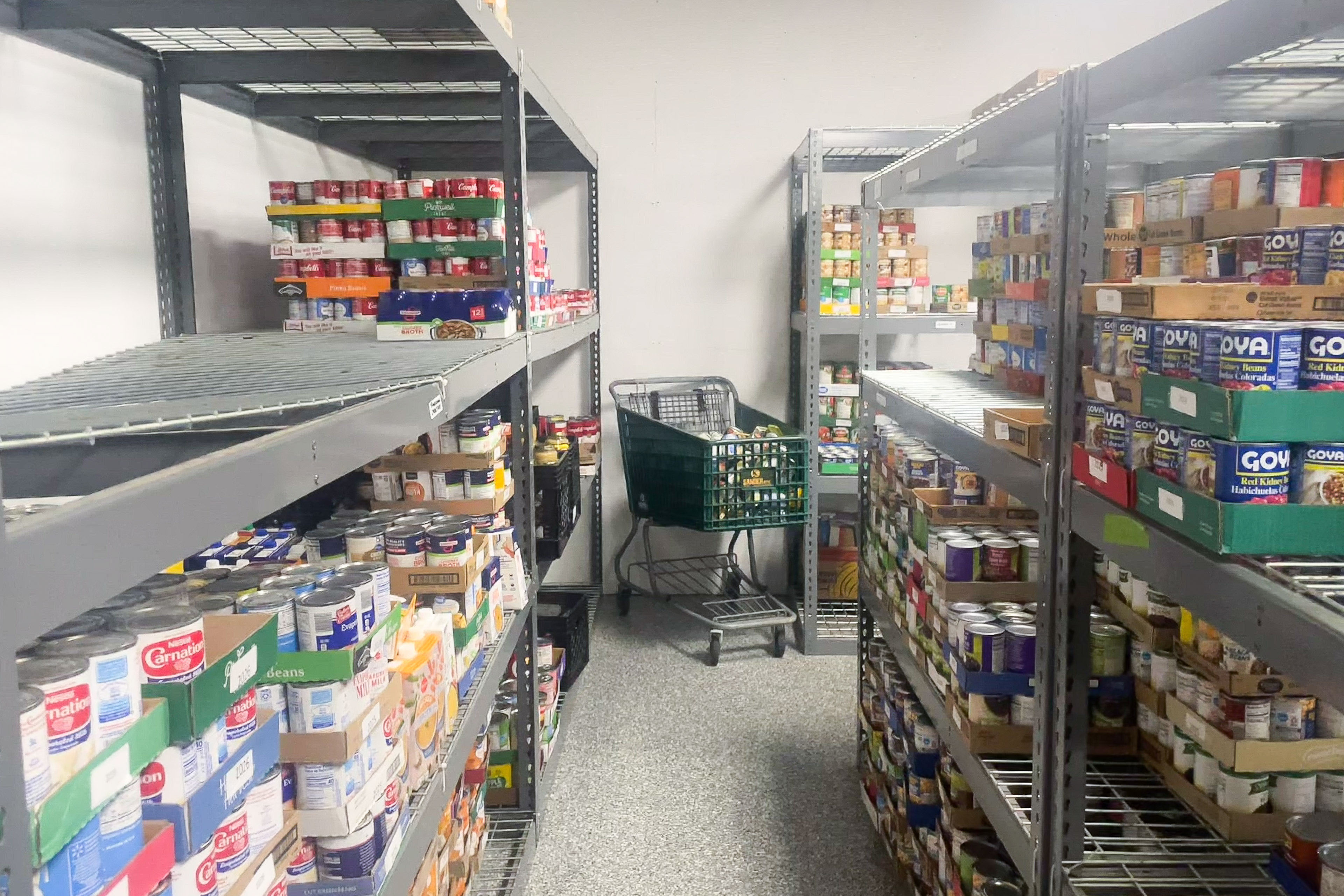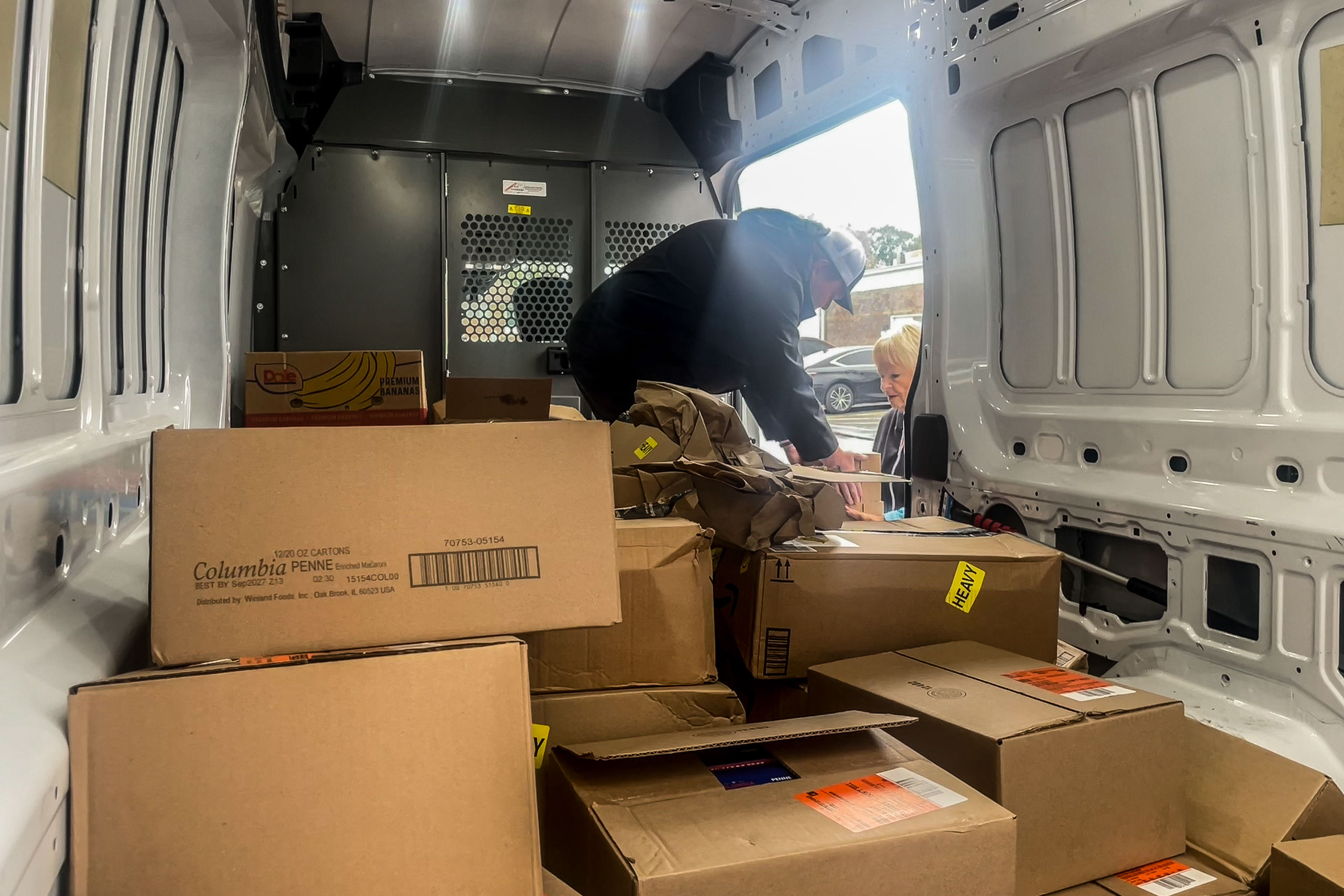The Trump administration’s overhaul of the nation’s largest meals help program will trigger thousands and thousands of individuals to lose advantages, pressure state budgets, and stress the nation’s meals provide chain, all whereas seemingly hindering the targets of the administration’s “Make America Healthy Again” platform, in response to researchers and former federal officers.
Everlasting adjustments to the Supplemental Diet Help Program are coming whatever the consequence of at the least two federal lawsuits that search to forestall the federal government from chopping off November SNAP advantages. The lawsuits problem the Trump administration’s refusal to launch emergency funds to maintain this system working throughout the federal government shutdown.
A federal choose in Rhode Island ordered the federal government to make use of these funds to maintain SNAP going. A Massachusetts choose in a separate lawsuit additionally mentioned the federal government should use its meals help contingency funds to pay for SNAP, however gave the Trump administration till Nov. 3 to provide you with a plan.
Amid that uncertainty, meals banks throughout the U.S. braced for a surge in demand, with the likelihood that thousands and thousands of individuals will likely be reduce off from the meals program that helps them purchase groceries.
On Oct. 28, a vanload of SpaghettiOs, tuna, and different groceries arrived at Gateway Meals Pantry in Arnold, Missouri. It might be Gateway’s final cargo for some time. The meals pantry south of St. Louis largely serves households with school-age youngsters, but it surely has already exhausted its yearly meals finances due to the surge in demand, mentioned Government Director Patrick McKelvey.
New Disabled South, a Georgia-based nonprofit that advocates for folks with disabilities, introduced that it was providing one-time funds of $100 to $250 to people and households who had been anticipated to lose SNAP advantages within the 14 states it serves.
Lower than 48 hours later, the nonprofit had acquired greater than 16,000 requests totaling $3.6 million, largely from households, way over the group had funding for.
“It’s unreal,” co-founder Dom Kelly mentioned.
The specter of a SNAP funding lapse is a preview of what’s to come back when adjustments to this system that had been included within the One Large Lovely Invoice Act that President Donald Trump signed in July take impact.
The home tax-and-spending legislation cuts $187 billion throughout the subsequent decade from SNAP. That’s a virtually 20% lower from present funding ranges, in response to the Congressional Funds Workplace.
The brand new guidelines shift many meals and administrative prices to states, which can lead some to contemplate withdrawing from this system, which helped about 42 million folks purchase groceries final 12 months. Separate from the brand new legislation, the administration can also be pushing states to restrict SNAP purchases by barring things like sweet and soda.
All that “puts us in uncharted territory for SNAP,” mentioned Cindy Lengthy, a former deputy undersecretary on the Division of Agriculture who’s now a nationwide adviser on the legislation agency Manatt, Phelps & Phillips.
The nation’s first meals stamps had been issued on the finish of the Nice Despair, when the poverty-stricken inhabitants couldn’t afford farmers’ merchandise. Immediately, as an alternative of stamps, recipients use debit playing cards. However this system nonetheless buoys farmers and meals retailers and prevents starvation throughout financial downturns.
The CBO estimates that about 3 million folks will lose meals help because of a number of provisions within the finances legislation, together with making use of work necessities to extra folks and shifting extra prices to states. Trump administration leaders have backed the adjustments as a strategy to restrict waste, to put extra folks to work, and to enhance well being.
That is the most important reduce to SNAP in its historical past, and it’s coming towards the backdrop of rising meals costs and a fragile labor market.
The precise toll of the cuts will likely be tough to measure, as a result of the Trump administration ended an annual report that measures meals insecurity.
Listed here are 5 massive adjustments which are coming to SNAP and what they imply for Individuals’ well being:
1. Need meals advantages? They are going to be more durable to get.
Beneath the brand new legislation, folks should file extra paperwork to entry SNAP advantages.
Many recipients are already required to work, volunteer, or take part in different eligible actions for 80 hours a month to get cash on their profit playing cards. The brand new legislation extends these necessities to beforehand exempted teams, together with homeless folks, veterans, and younger individuals who had been in foster care once they turned 18. The expanded work necessities additionally apply to folks with youngsters 14 or older and adults ages 55 to 64.
Beginning Nov. 1, if recipients fail to doc every month that they meet the necessities, they are going to be restricted to a few months of SNAP advantages in a three-year interval.
“That is draconian,” mentioned Elaine Waxman, a senior fellow on the City Institute, a nonprofit analysis group. About 1 in 8 adults reported having misplaced SNAP advantages as a result of they’d issues submitting their paperwork, in response to a December City Institute survey.
Sure refugees, asylum-seekers, and different lawful immigrants are reduce out of SNAP fully below the brand new legislation.

2. States should chip in more cash and assets.
The federal legislation drastically will increase what every state should pay to maintain this system.
Till now, states have wanted to pay for under half the executive prices and not one of the meals prices, with the remaining coated by the federal authorities.
Beneath the brand new legislation, states are on the hook for 75% of the executive prices and should cowl a portion of the meals prices. That quantities to an estimated median price improve for states of greater than 200%, in response to a report by the Georgetown Heart on Poverty and Inequality.
A KFF Well being Information evaluation reveals {that a} single funding shift associated to the price of meals might put states on the hook for a further $11 billion.
All states take part within the SNAP program, however they might choose out. In June, almost two dozen Democratic governors wrote to congressional leaders warning that some states wouldn’t have the ability to provide you with the cash to proceed this system.
“If states are forced to end their SNAP programs, hunger and poverty will increase, children and adults will get sicker, grocery stores in rural areas will struggle to stay open, people in agriculture and the food industry will lose jobs, and state and local economies will suffer,” the governors wrote.
3. Will the adjustments result in extra wholesome consuming?
The Trump administration, by way of its “Make America Healthy Again” platform, has made wholesome consuming a precedence.
Well being and Human Providers Secretary Robert F. Kennedy Jr. has championed the restrictions on soda and sweet purchases throughout the meals help program. Up to now, 12 states have acquired approval to restrict what folks should buy with SNAP {dollars}.
Federal officers beforehand blocked such restrictions, as a result of they had been tough for states and shops to implement they usually increase stigma round SNAP, in response to a 2007 USDA report. In 2018, the primary Trump administration rejected an effort from Maine to ban sugar-sweetened drinks and sweet.
A retailer might resolve that trouble isn’t value collaborating in this system and drop out of it, leaving SNAP recipients fewer locations to buy.
Individuals who obtain SNAP are not any extra seemingly to purchase sweets or salty snacks than individuals who store with out the advantages, in response to the USDA. Analysis reveals that encouraging wholesome meals selections is simpler than regulating purchases.
When folks have much less cash to spend on meals, they usually resort to cheaper, unhealthier options that maintain them sated longer somewhat than paying for costlier meals that’s wholesome and contemporary however fast to perish.

4. How will SNAP cuts have an effect on well being?
Advocacy organizations working to finish starvation within the nation say the cuts could have long-term well being results.
Analysis has discovered that youngsters in households with restricted entry to meals are extra seemingly to have a psychological dysfunction. Equally, meals insecurity is linked to decrease math and studying expertise.
Working-age folks with meals insecurity are extra seemingly to expertise power illness. That lengthy checklist contains hypertension, arthritis, diabetes, bronchial asthma, and power obstructive pulmonary illness.
These well being points include prices for people. Low-income adults who aren’t on SNAP spend on common $1,400 extra a 12 months on well being care than those that are.
About 47 million folks lived in households with restricted or unsure entry to meals in 2023.
5. What does this imply for the nation’s meals provide chain?
SNAP spending instantly boosts grocery shops, their suppliers, and the transportation and farming industries. Moreover, when low-income households have assist accessing meals, they’re extra more likely to spend cash on different wants, comparable to prescriptions or automobile repairs. All that signifies that each greenback spent by way of SNAP generates at the least $1.50 in financial exercise, in response to the USDA.
A report by associations representing comfort shops, grocers, and the meals trade estimated it might price grocers $1.6 billion to adjust to the brand new SNAP restrictions.
Advocates warn shops might move the prices on to buyers, or they might shut.




